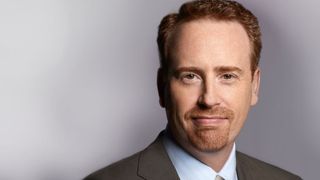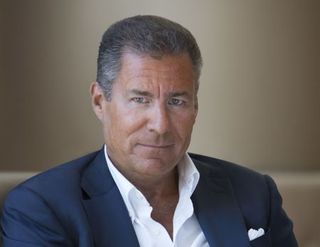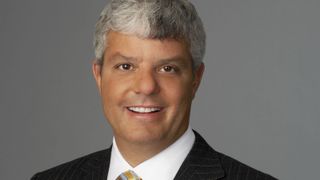WarnerMedia Plots OTT Plan Amid Departures
In the wake of a big regulatory victory clearing its purchase of Time Warner, AT&T unveiled a major restructuring that sent two well-respected executives packing, could lead to “significant layoffs” and sets the media giant on a path lined with uncertainty as it tries to reinvent its content business.

AT&T seemed to close out February on a high note, with a federal appeals court rejecting the Justice Department’s second attempt to block the Time Warner merger on Feb. 26. But by Monday, the company had a new head for its WarnerMedia division, industry veteran Robert Greenblatt, and lost two top executives, HBO CEO Richard Plepler and Turner president David Levy.
A third executive, Warner Bros. CEO Kevin Tsujihara, who earlier last week was given added responsibilities in the new corporate structure, is on thin ice after a report surfaced that he had conducted an inappropriate sexual relationship with an actress whom he had pressured Warner casting directors to hire. AT&T said it is investigating the allegations.
AT&T made the Greenblatt hire official on March 4, naming him chairman of WarnerMedia and Direct To Consumer. AT&T plans to launch a third direct-to-consumer offering, in addition to DirecTV Now and AT&T Watch, by the end of the year.

AT&T named CNN Worldwide president Jeff Zucker chairman of WarnerMedia News & Sports, gave added global kids and young adult business responsibilities to Tsujihara and tapped Turner International president Gerhard Zeiler as WarnerMedia’s chief revenue officer.
AT&T Makes Its Mark
The moves were not entirely unexpected. AT&T had been hinting for months after it closed the Time Warner deal in July that its newly acquired content businesses were in need of an overhaul. At a town meeting with HBO employees in June, WarnerMedia CEO John Stankey told workers that the premium channel was in for “a tough year.”
Multichannel Newsletter
The smarter way to stay on top of the multichannel video marketplace. Sign up below.
AT&T has said that to compete in the new streaming video, skinny-bundle, on-demand media environment, WarnerMedia needs to drive engagement with consumers. Time Warner should harness the combined power of brands like Turner and HBO under one service to compete on a global scale with the likes of Netflix and Disney. The service, Stankey said, needed hours of engagement per day with consumers, not hours per week.
It will be up to Greenblatt, who has a strong media track record, to bring continuity and stability to the brands. He joined Showtime in 2003 and is credited with bringing in hits like Weeds, Nurse Jackie, Dexter and Shameless, leaving in 2011 to become head of Comcast’s NBC Entertainment. There, Greenblatt inherited a weakened primetime lineup but quickly led a turnaround with hits like The Voice, The Good Place and This Is Us. He left NBC in September.

The departure of Plepler and Levy was nonetheless shocking, given the two executives have had an enviable string of successes at their respective businesses. Plepler, who had been at HBO since 1992, became CEO of the premium channel in 2012 and launched several iconic hits, including Game of Thrones. He has also cultivated a strong relationship with top talent like Oscar-winning director Martin Scorsese, The Sopranos creator David Chase, The Wire creator David Simon and GoT writers David Benioff and D.B. Weiss. Losing Plepler could have an impact on HBO’s ability to attract and keep talent.
Levy took the helm of Turner in 2013 after several successful years at Turner Sports, helping to engineer its landmark deal for “March Madness” — the NCAA men’s college basketball tournament — with CBS in 2010.
There are likely to be more defections in the wake of the shakeup and reports said that there will be “significant layoffs” at both HBO and Turner as AT&T tries to lower costs.
In a blog post, MoffettNathanson principal and senior analyst Craig Moffett said the changes at AT&T are a double-edged sword. On one hand, both Turner and HBO generated tens of millions, maybe hundreds of millions of dollars in excess costs.
“The glass-half full version is that Time Warner needed to be shaken up,” Moffett wrote.
The glass-half empty view, according to Moffett, is that WarnerMedia has set the stage for a major talent drain at the company, just when experienced hands are needed the most.
